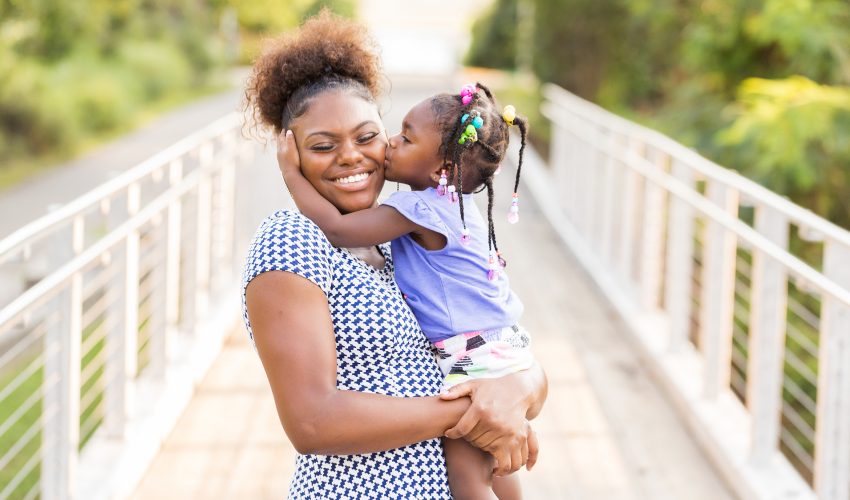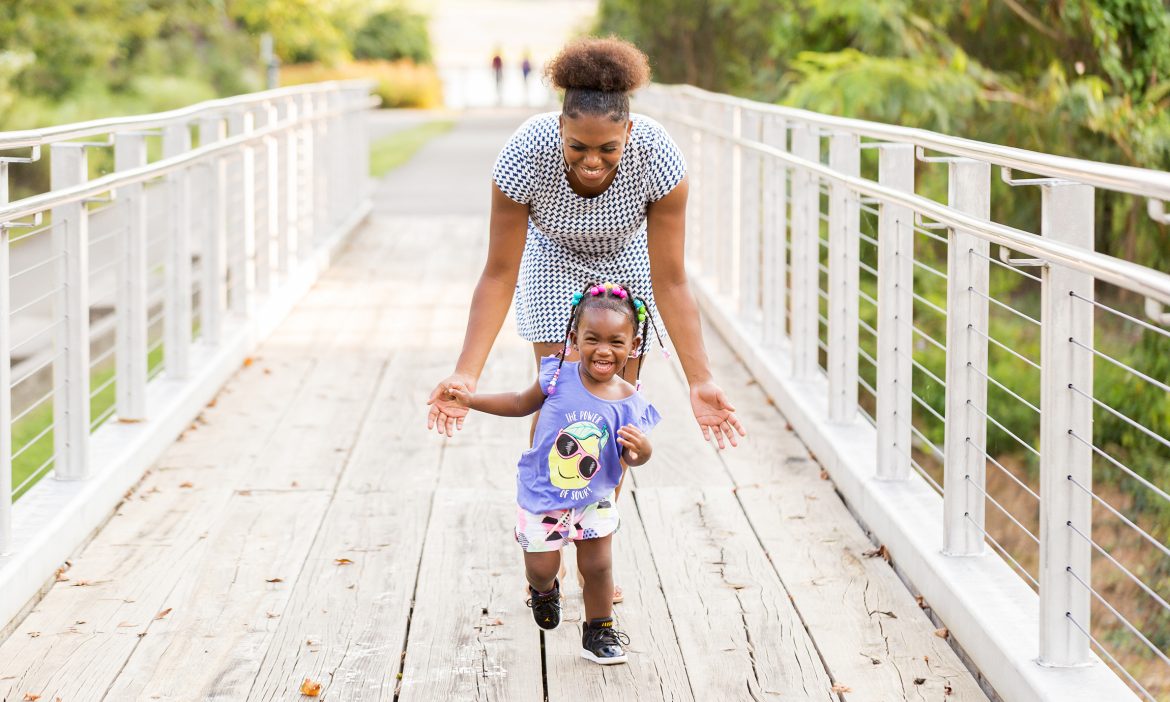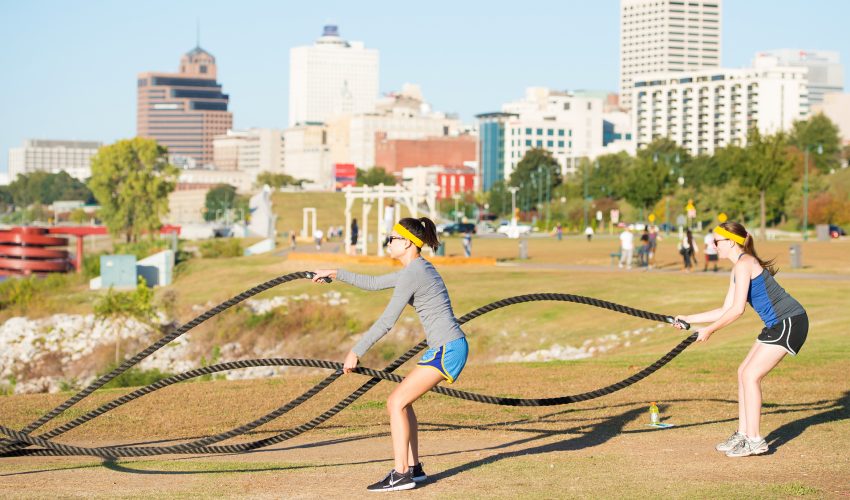For Torey Covington, motherhood was a journey that she expected to face alone.
“I was 19 and pregnant and didn’t have any support from my child’s father,” Covington says. “I couldn’t even finish school.”
“I was young and lost, and I didn’t know where I was heading.”
“But as soon as I met my case worker from Baby University, MaryBeth Steffey, I knew I was in good hands.”
Since 2015, Baby University has been partnering with expectant parents and those with young children to create sustainable futures so children can thrive. The Chattanooga-based program focuses on childhood development from prenatal stages to preschool. And it provides mothers and fathers with the tools to enhance a child’s stability while achieving their own personal goals.
Their services include:
- Mentoring and coaching
- Access to prenatal care and childcare
- Housing and employment assistance
- Developmental screening for children
“When I started the program I didn’t even have a birth certificate for my daughter,” says Covington. “Now not only do I have that, but I also have a new house and my daughter has a head start.”
Covington is moving forward, too: With help from Baby University, she earned her high school diploma and is now pursuing a business degree from Chattanooga State Community College.
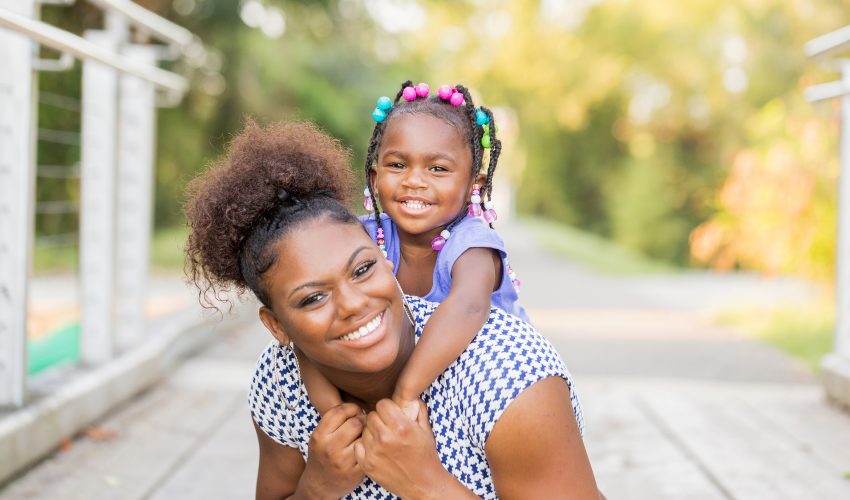
Torey Covington and her daughter
Making it personal
By taking a customized approach towards each family, Baby University develops roadmaps to success for its clients.
“Our intensive case management model has been hugely impactful,” says Elizabeth Cotellese, Baby University program director. “We’re meeting very frequently with the families and we have smaller caseloads. That allows us to coach families one-on-one.”
This individual attention and care has enabled Andrea Davenport to forge her own path to parenthood, giving her concrete ways to become more independent. Many Baby University families struggle with poverty, access to health care and affordable housing and finding employment, so making a list of things to accomplish and working through them one by one is critical.
Davenport’s caseworker, April Rentzsch, has helped her with things as big as earning her driver’s license and as small as gathering household essentials.
“I love that I’m in the program because it’s given me the most opportunities I’ve ever had,” says Davenport. “If it wasn’t for Baby University, I would have been stuck with no job, home or even diapers sometimes.”
Since joining the program at age 18, Davenport has gone on to purchase her first car and enroll in the online Independence University. Every gesture from her support team makes a difference.
“April is always there when I need help or advice,” she says.
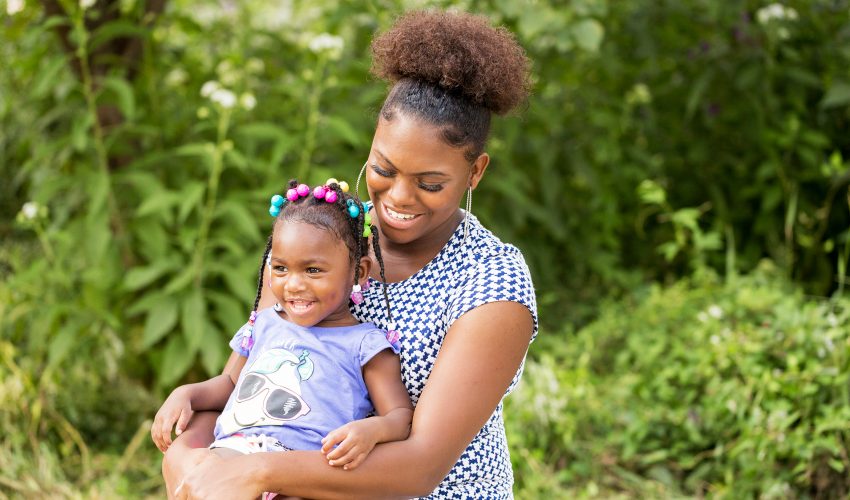
Looking to the future
Baby University has come a long way in its first few years, especially with its emphasis on community building. By organizing walking groups for parents or encouraging them to attend their children’s soccer games, Baby University helps its families connect and relate, and that leads to sustainable support.
“Parents get to know each other and begin to lean on each other as support systems,” says Cotellese.
Donna McConnico, CEO of Signal Centers, the nonprofit that administers Baby University, feels there are still more ways for the organization to expand its efforts.
“We would like to see expectant mothers get prenatal care in the first trimester,” says McConnico. “Many families come to us in their second trimester, but we’re working to try to support families earlier. We’re also focusing on parents’ abilities to manage stress and reduce adverse childhood experiences to ensure children get the best possible start in life and reap the benefits for a lifetime.
“I always find myself asking: How can we do better?”
